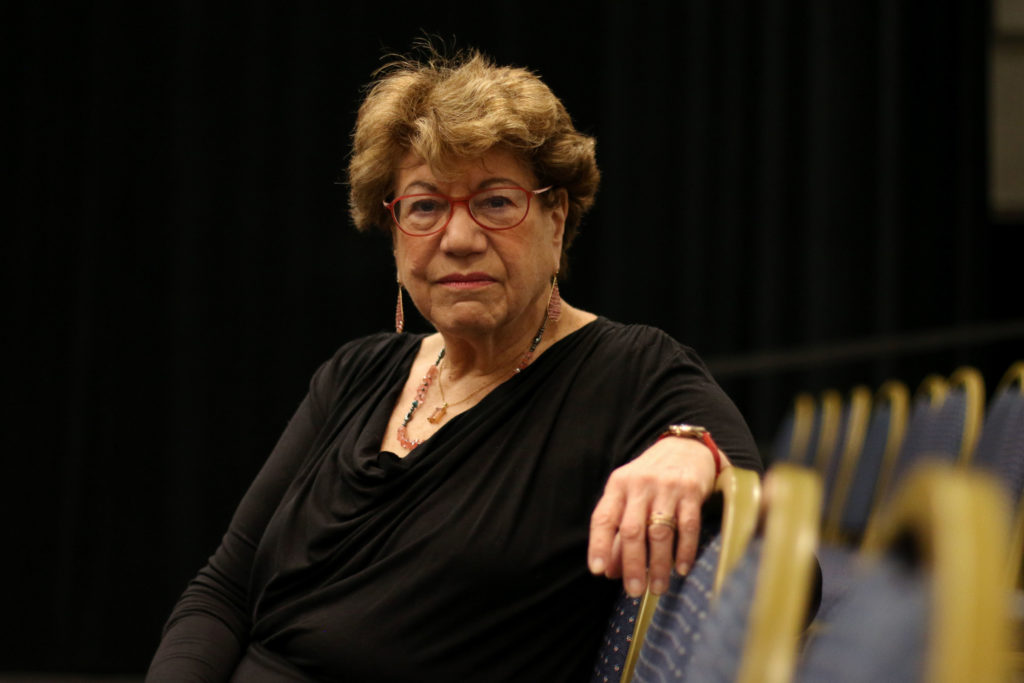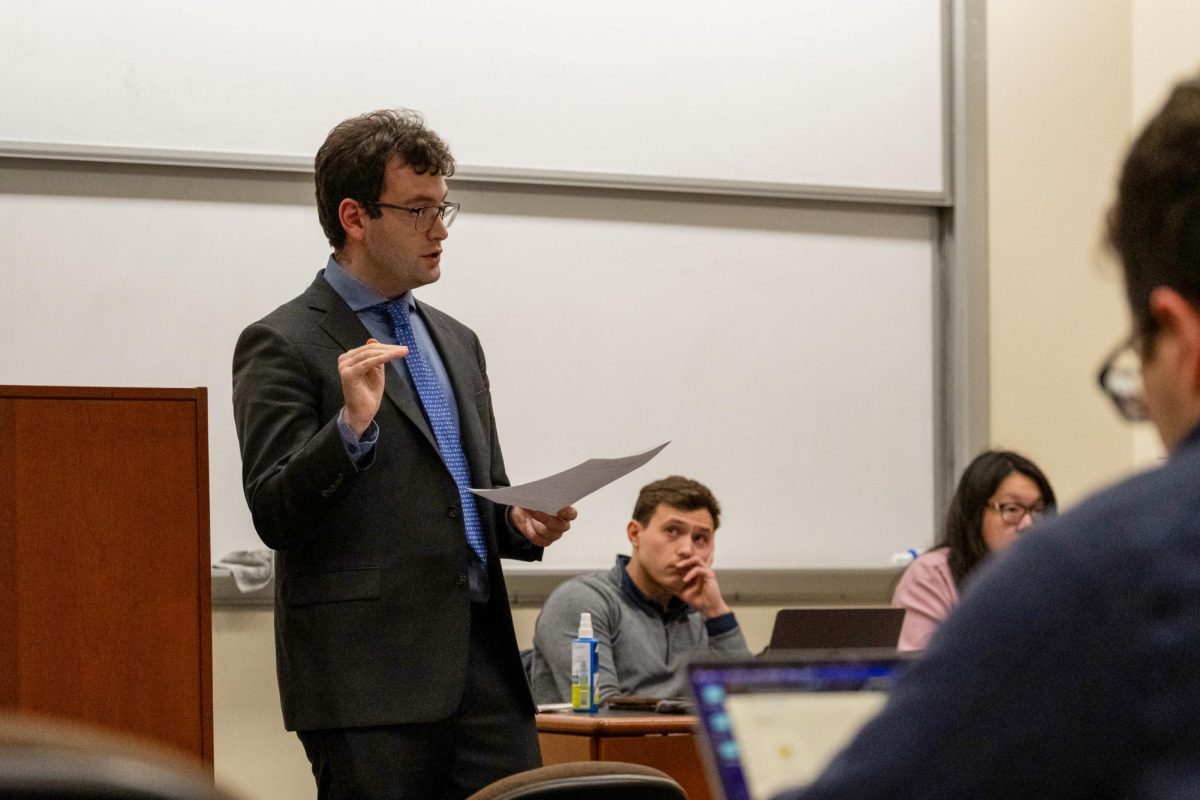When Leslie Jacobson took the helm of the theater and dance department more than two decades ago, she knew that she wanted to use her new role to inspire social change.
Twenty-four years later, Jacobson said she can look back on a career highlighted by establishing the Women’s Leadership Program in International Arts and Culture and creating a course called Theatre for Social Change, where students use performance to analyze the effect of social movements, equality and justice. Jacobson, who worked her way from guest artist to chair of the theater and dance department, will close the curtain on a roughly 43-year-long career at the end of the spring semester when she retires.
“For me, I was very proud of when I was chair of having a department that had theory and practice woven together, and I gave students the opportunity also to explore other aspects of this big University,” Jacobson said.
Jacobson began her career at GW in 1976 and chaired the theater and dance department from 1995 to 2008. In addition to teaching, she ran a professional theater company from 1977 to 2007 focused on producing work by women playwrights called Horizons: Theater from a Woman’s Perspective. She also directs productions at GW almost every year and will premiere “Women’s Works” in March at Betts Theatre.
“Using theater as an instrument of change is the area of research and passion that I have, that I’ve been most interested in developing over the years, and have students, many students, who were interested in seeing that happen,” she said.
Jacobson also established a cultural exchange program 16 years ago with the Bokamoso Youth Center, an organization in rural Winterveld, South Africa, that works with and educates at-risk youth. She said the annual program brings young people to GW’s campus and teaches them about social issues, like the HIV and AIDS crisis and domestic abuse, through performance art.
While she is leaving GW as a faculty member, Jacobson said she does not plan on “disappearing” from campus after she retires at the end of the semester.
“I will come and see things here, I may do projects that can involve students and professionals in the area, I’m certainly not going to stop making theater, going to theater and supporting theater and students,” she said.
Julia Barrett, a graduate student who has worked with Jacobson since her freshman year, said she “buried” herself under Jacobson’s “wing” and worked with her on plays like “King Lear” and “Migratory Tales.”
“Professor Jacobson is kind of like a friend and a mom and a mentor all wrapped in one,” she said. “She really cares about her students, and she has a wonderful way of blending informal, kind behavior with also really serious, it’s time to work now.”
Roy Barber, a teacher, composer and playwright who works with Jacobson at the Bokamoso Youth Center, said Jacobson’s work in South Africa empowers young people to pursue educational opportunities in the arts.
He added that he worked with Jacobson on projects like the Horizons Theater, and together, they created a play about fighting bullying.
“We have a very compatible working style and our values – she had a very humane vision and she liked humor – but we both liked to see people overcome obstacles in a positive way,” he said.
Mary Buckley, an associate professor of dance and the director of the Women’s Leadership Program, said that when she worked with Jacobson on musicals, Jacobson always put forward innovative ideas and welcomed collaboration.
“I loved being in faculty meetings with Leslie because she’s very supportive,” she said. “If one has an idea or proposal, she will join in and offer her support for it.”
Robert Baker, the program head of music in the Corcoran School of the Arts and Design, said Jacobson used her creative impulses and directing skills when working with students on projects or in class, which he said has encouraged students to become “demonstrably” better on stage.
“It is hard to imagine what we do without her as a colleague,” he said. “She has been that integral and that important, and that much of a mentor for so many students and fellow faculty members. She has left us a huge responsibility to work in ways in which she has inspired us.”
Lauren Peller contributed reporting.





